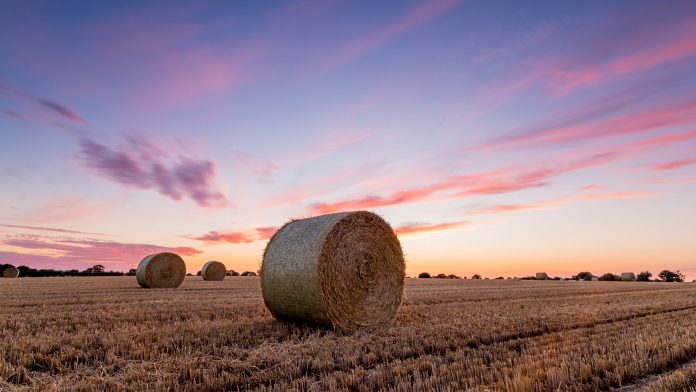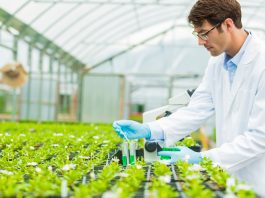Commissioner for Agriculture, Janusz Wojciechowski, stresses how agriculture is not in the past, it is in fact a future solution to climate change.
Launched in 1962, the EU’s Common Agricultural Policy (CAP) is a partnership between agriculture and society, and between Europe and its farmers. The Innovation Platform speaks to the European Commissioner in charge of EU Agriculture and CAP, Janusz Wojciechowski, about how agriculture could offer a solution to climate change.
To begin, what is your long-term vision for agriculture and rural areas?
I was born and raised in a farming family. I know from my own experience how hard the work is on a farm. So, agriculture is close to my heart. My ambition as the Commissioner for Agriculture is to work relentlessly for a stronger CAP.
We make more and more demands on our farmers. Our society and our consumers ask them to deliver safe food produced in a way that protects our natural resources and our climate while respecting animal welfare. Our farmers can deliver on those demands however we need to strengthen the support we provide to them.
Agriculture is our future, not our past. If our farmers are to successfully face the challenges of food security, protection of our planet and our climate, innovation and research will be essential. We need to enable rural areas to make the most of their potential and support them in facing up to their own unique issues, from demographic changes to connectivity, the risk of poverty and limited access to services. We need to ensure that citizens in rural areas are not overlooked, and that the specific needs of rural areas are in the focus of decision makers. Europe’s rural areas should remain vital and dynamic and this is what the future rural vision should carry forward.
How important is it to ensure that the CAP becomes more responsive to current and future challenges such as climate change, and how can this be achieved?
The proposals for the future CAP offer the right tools to respond to current and future challenges. The new delivery model, which includes national CAP strategic plans, proposes a more flexible system by giving the opportunity for member states to meet EU-wide objectives while adapting to local needs of farmers and the rural community.
The new CAP reform acknowledges the need to increase ambition level regarding environment and climate change. Member States are required to present a sound analysis of its situation in terms of climate change, offer a convincing overall response to the problems identified and demonstrate that their CAP Strategic Plan has a higher environmental and climate ambition than the current CAP. This will be done through a whole range of CAP tools available: enhanced conditionality to be met by farmers receiving area- and animal-based CAP payments, innovative eco-schemes that will enable Member States to dedicate a share of their direct payments envelope to schemes supporting farmers in their transition towards a more sustainable agriculture and a minimum spending requirement for climate and the environment action under rural development.
What role will the CAP play in mobilising both farmers and stakeholders to use pesticides in a more sustainable manner?
In the overall green deal, the CAP after 2020 will be the instrument to help farmers in reducing their dependency on most risky pesticides and significantly reduce the use and risk of chemical pesticides, as well as the excessive use of antibiotics.
This will not happen miraculously, it will be the result of serious, targeted, well-planned and repeated actions, investments and efforts by all those concerned. Tangible results will be reached only if we are able to conduct all EU farmers in the desired direction. I will ensure that the EU offer the right support to our farmers during this phase. We make more and more demands on our farmers, but it is important to remember that they are not part of the problem, they are part of the solution.
It is important to stress that the current CAP policy already contains many tools to help farmers, which are and will be even more in the future relevant and effective for the sustainable use of pesticides. Future proposals will also include the most relevant parts of pest management already familiar to farmers including crop rotation and requirements for biodiversity areas. Importantly, the Commission also proposes a better integration of the system for advising farmers on best practices and better integration with research and knowledge transfer from the CAP Member State networks. For the next budget, the European Commission proposed to set aside €10bn from the Horizon Europe programme for research and innovation specifically for food, agriculture, rural development and the bioeconomy.
To help ensure that the green deal orientations are a success, Member States will set out in their National Action Plans how they will achieve their goals based on their own particular circumstances of crops grown. The Commission will monitor the results of these actions through the Member State strategic plans on a yearly basis, using an agreed set of rules.
Why is it important that the post-2020 CAP is simplified, and what does this involve in terms of a new ‘Farm to Fork’ strategy?
Simplification is not about a single action but an objective that is to be pursued through all the steps of the policy cycle (from strategic planning to evaluation) and at all governance levels (EU, national and regional).
The Commission’s proposals for the CAP after 2020 clearly take this into account by addressing the issue of ‘simplification’ in several ways. Firstly, the Commission has greatly reduced the level of detailed legislation at EU level. Secondly, the proposal increases the margin of manoeuvre for Member States to ensure that the rules they define reply to the needs of their farmers. Thirdly, the national CAP Strategic Plans must specifically set out and explain how a Member State ensures a simple implementation of the policy.
The Farm to Fork strategy’s objective is to move towards a sustainable food system with a neutral or positive environmental impact. In this context, it is key that Member States tailor and simplify the measures reflecting the ambition of the Farm to Fork Strategy.
In terms of the CAP budget, what do you think needs to be done in terms of defending the interest of farmers and rural communities?
The Commission proposes to maintain a strong budget for agriculture – €365bn for the period 2021-2027. While this represents a moderate cut of 5%, we need to look at the broader picture, not just CAP funding, and the enormous challenges that were considered in the proposal on the multiannual financial framework for 2021-2027 and the context of Brexit. The proposal requires farmers to contribute more to climate and environmental objectives. In fact, 40% of CAP spending should be climate-related. For this, the CAP needs sufficient funding.
Despite the potential cut, the future CAP offers a wide margin of manoeuvre to enhance cost-efficiency of the CAP by considerably improving how support will be targeted. This will be possible thanks to the CAP national strategic plans, a key component of the Commission’s proposal for the future CAP. Moreover, clearly if there were to be a political consensus among European Leaders to increase CAP funding, I would welcome it. Such a consensus is a matter for our political leaders.
Janusz Wojciechowski
Commissioner for Agriculture
European Commission
Please note, this article will also appear in the first edition of our new quarterly publication.









